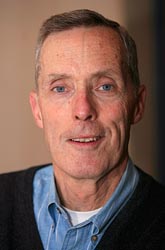For a director of central intelligence, it demonstrated an astounding lack of common sense.
As the reputation of retired four-star general David Petraeus continues to shatter under revelations of adultery and poor judgment, we are left with several things to ponder.
Petraeus, as anyone with access to any communications device now knows, abruptly resigned as director of the Central Intelligence Agency admitting he had an extramarital affair with Paula Broadwell, the author his biography. The admission and resignation came after the FBI began monitoring Petraeus’ email as part of another investigation.
Perhaps a four-star general who doesn’t realize there is no guarantee of privacy of email correspondence was not the best candidate to be director of the nation’s intelligence agency.
In the torrent of news coverage that followed, it was interesting how many times Petraeus was identified as “revered,” “most celebrated general of his era.” He is not the first celebrity general to suffer hubris (think George Armstrong Custer).
Petraeus’ feet of clay walk in the footsteps of many others who demonstrated similar failure of marital fidelity: Franklin D. Roosevelt, Dwight D. Eisenhower, John F. Kennedy and Bill Clinton — all admired presidents of the United States.
And “heroes” of athletics: Tiger Woods, golf, adultery; Mark McGwire, baseball, drugs; Lance Armstrong, cycling, drugs, allegedly. Names from the entertainment industry could fill a telephone directory.
The point is not to point fingers at these individuals but instead to suggest that, as a society, we make poor choices when it comes to naming heroes. We have imperfect selection standards.
Paid entertainers and professional athletes are not popular for their heroic qualities.
“Hero” is used much too frequently so as to devalue its true meaning. A fireman who enters a burning building is certainly courageous, but that is his duty, what he signed up for. Heroism, as the citation for Medal of Honor says, is going beyond the call of duty. Likewise, every person now in the military who performs his or her job competently and goes where duty calls is not a hero. They are doing their duty, the vast majority not heroically.
Just as “hero” is misused so often, the too often misused word “tragedy” is exactly on target in the Petraeus situation: the protagonist whose fatal flaw results in a rapid fall from the top.
The essential virtue in heroism is selflessness — subordinating wants, needs, even life, for another.
In unfortunate timing, the Newsweek magazine edition on the stands when the Petraeus news broke was titled “The Heroes Issue.” It included articles on heroes, the majority of them in the military. In a stroke of irony, the final page in the magazine was an article titled “Petraeus’ Rules for Living,” the author none other than Paula Broadwell. Among the 12 points, this is his Rule No. 5:
“We all will make mistakes. The key is to recognize them and admit them, to learn from them and to take off the rearview mirrors — drive on and avoid making them again.” That sounds a lot like a firm purpose of amendment even if lacking contrition.
Selflessness is a virtue deserving of more recognition. If heroism is defined as conspicuous selflessness, then this country is filled with heroes: from those dedicating their lives to caring for relatives with Alzheimer’s disease to parents whose time and energy is devoted to their children above and beyond the call of duty.
The call of duty is not the highest barrier to be met for heroism. It is lack of self.
***
Kent is the retired editor of archdiocesan newspapers in Omaha and Seattle. He can be contacted at Considersk@gmail.com.




Share this story